Betta Fish Facts – Everything You Need To Know!
Betta fish are one of the worlds most popular aquatic pets. They come in a variation of colors and patterns and fit with almost any type of tank setup.
These beautiful fish create an impressive view in your aquarium waters.
But you should know a few things about these fun fish before making a purchase. Betta are not difficult to care for.
Really, they are an ideal choice of fish for new pet owners. Still, they do have certain care requirements that you should abide by.
You’ll want to have some knowledge of these fish. And, you should prepare your tank and your home for your pet betta.
With the right information, you can do this and give them everything they need!
Table of Contents
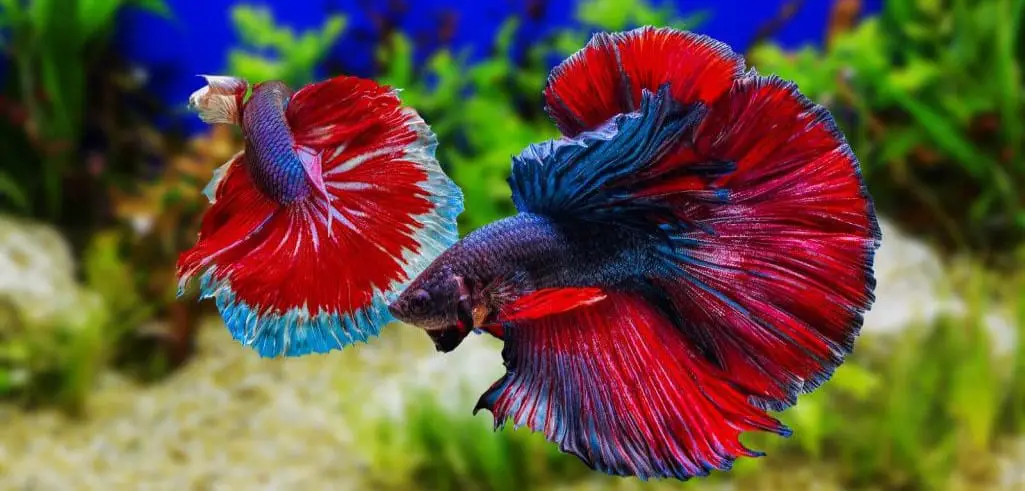
Betta Fish Personality
There are many betta fish facts that are pertinent to the care of your fish. One of the first things you need to know about betta is that they are aggressive.
Bettas look beautiful but they can turn deadly when placed in a tank with other fish. Think about this before you head out to a pet store. Some tank owners want to fill their aquarium with all sorts of colorful fish.
If you get a betta this might not be possible. There are limitations to the type of fish you can put in with male bettas.
If you put the right kind of breed in with your fish or leave them in a tank alone they can be friendly pets. Most bettas have their own unique personality traits.
Still, aggression should be considered if you are planning on having more than one fish in with a betta.
Facts About Betta Fish Origins
So why is this the case? Why are bettas so combative with other fish and their own species. The aggressiveness of the betta mostly stems from fish breeding practices.
Betta were bred to fight other fish in Southeast Asia. For the most part, male bettas were used to fight. Females helped create more fish to fight with.
It’s unfortunate, but after years of breeding for sport, these fishes personalities became bloodthirsty.
The name betta also ties into their dangerous personality and bloody origins. It’s derived from a known group of ancient fighters- the Bettah. As a result of their personality and name, bettas are commonly called fighting fish.
Not all bettas will fight other fish. Females tend to be more docile, but you need to be careful with your pet. As we said, male bettas, in particular, could start fights with your other tank inhabitants.
Some fish can live with male bettas, but you need to be careful about your choice. And never put a male betta in with another male betta.
Male betta fish do not hold back against other male bettas. They will end up killing each other. While these pets are no longer used as fighting fish, they still possess killer instincts.
Bettas and Other Fish: Facts to Know
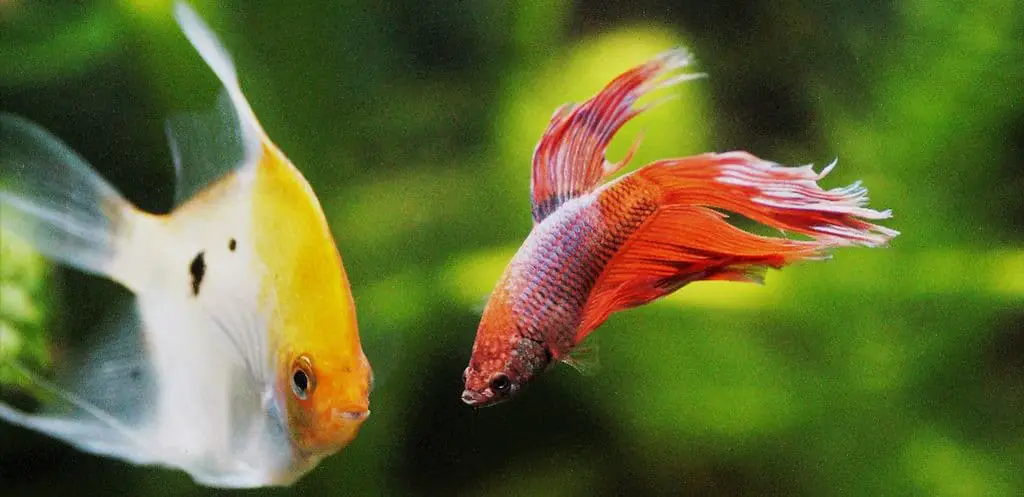
Knowing these betta fish facts, it is best to keep bettas separate. Keep them away from other male bettas and aggressive fish breeds.
You also want to keep male bettas away from colorful fish, and fish that look like them.
Really any kind of flashy or ornate fish should be kept in a separate tank just to be safe. Male bettas don’t handle some fish well and might pick on your other fish.
And it’s not just male betta fish you need to worry about. If a female betta is put in with a male betta they will die.
Betta Sorority
Female bettas are better if you want to have a more diverse fish tank. Females can be kept together with little issue. The only to worry about is tank measurement. J
ust have a big enough tank for all your female bettas. This will create better results.
Personally, we recommend going with a ten gallon tank. Even female betta can be a little territorial.
But with a group of five female betta aggression should be brought down considerably. And other fish can be introduced to your tank.
Female bettas won’t put up as much of a fight as their male counterparts. But watch over them as you would with any other new school of fish.
You don’t want any fish fights in your tank.
A group of females bettas, also known as a sorority, can give you a great tank atmosphere. You can even put in other fish.
Just make sure these fish are all put in around the same time. And do this while the fish are young.
Betta Fish Environment Facts

As we mentioned, bettas were cultivated in Southeast Asia. The environment of this area has certain features that you can mimic in your tank.
Bettas are usually found in rice paddys and low levels waters. So a long but short tank works well for your betta.
In terms of climate, their water conditions usually stay on the warm side. But the water changes a lot due to the weather.
This leads us to more betta fish facts.
The Labyrinth Fish
Storms and flooding in rice fields have made betta extremely hardy. Because the water levels change with the weather their organs have adapted.
Bettas have a unique organ called the labyrinth, which give them the ability to breathe air in and above water.
You don’t want to leave your betta outside of water for long. But because of these adaptions to their biology, they can breathe outside water.
This is only for a very limited amount of time though.
This ability allows betta to survive even in poorly oxygenated waters. You don’t want to keep your water in bad shape. But your betta can survive in many conditions.
Still, you should at least keep your water warm. These are tropical pets.
Betta will like water temperatures that are warmer best. Between seventy-six degrees, Fahrenheit and eighty-two degrees Fahrenheit is a good temperature range.
You don’t want your pet in cold water. When betta are put in colder climates, they become stressed. Stress can shorten your fish’s lifespan and make them sick.
Betta Fish Tank Facts
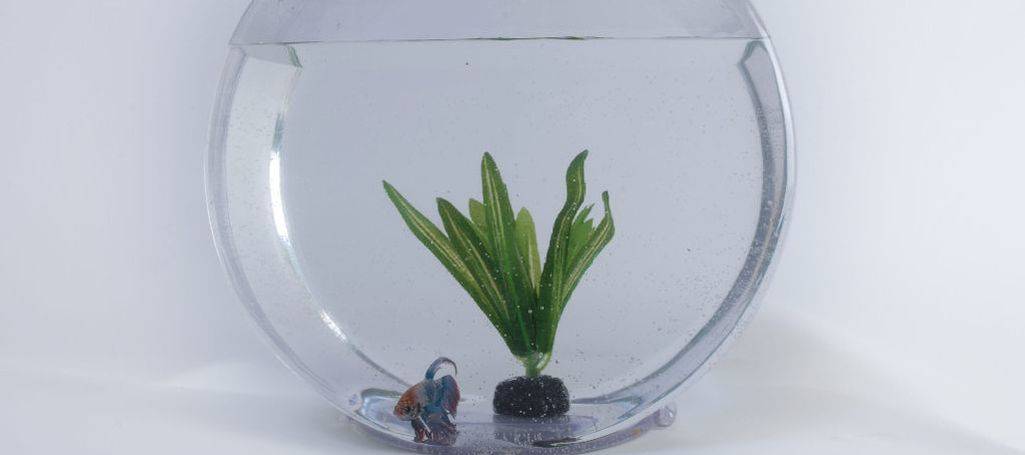
Betta fish are a good pick for new fish owners.
These pets are active and fun to have around!
They will follow you when you are nearby, and try to get your attention. In fact, your betta enjoys swimming a lot.
Most new aquarium owners assume that a small betta fish won’t need too much space to swim. But this isn’t true in the slightest. This leads to our next set of betta fish facts about tanks.
Betta Without a Bowl
Undersized tanks are never good for a fish, even a small fish. A lot of beginners opt to get a bowl. Others get one or two gallons tanks.
For any fish, we recommend going with a larger size tank.
Specifically, for betta, they need at least five gallons of water to swim in. This can seem like a big size tank for one fish but think about it.
Your fish will never leave its tank. It will swim, eat, and relieve itself in this one space. It’s better to give it as much room as possible.
Not only so they can swim, but for clean up purposes.
It’s much easier to maintain a tank with more water. Waste spreads out more, and you won’t have to change the water as much.
If you plan on getting a fish, a tank should be bought before you get your pet. Tanks need to be prepared and cycled before your fish comes into contact with the water.
As you can imagine, tanks are an important part of fish health.
If you want to keep your fish alive and happy, you need to get them a good tank. There are tons of tanks out there for your fish. All of them differing in levels of quality.
Fish tanks encompass a large market. You will find different materials, shapes, and other variations.
The choice between tank brands and shapes is up to you. Just make sure your tank has ample space for your pet betta.
This is the most important component of a tank purchase.
Betta Fish Food Facts
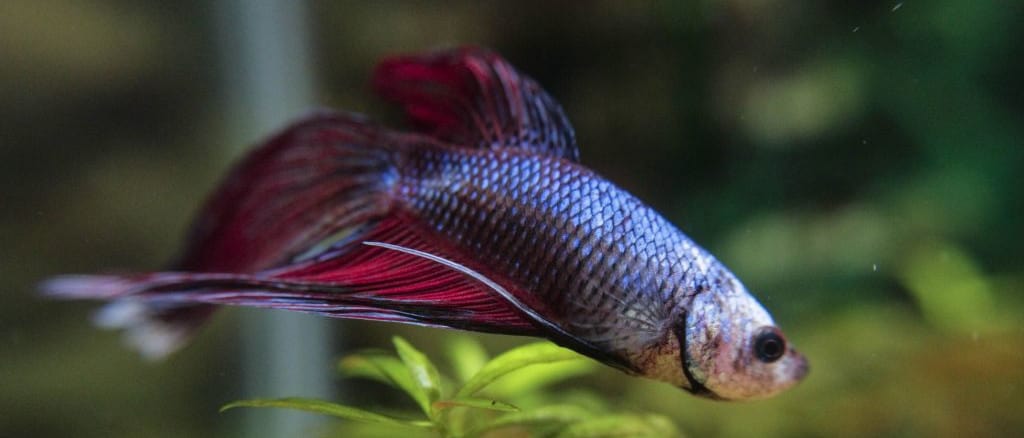
Betta fish aren’t always easy to feed. Bettas can actually be quite picky when it comes to food.
You might have to try a few different foods before you find the right sustenance for your pet.
Luckily, there are lots of food options out there for aquatic pets. From frozen foods to dry foods, to pellets, you can find all sorts of food for your betta.
Keep these betta fish facts in mind as you make your choice.
Typically, bettas enjoy protein packing bloodworms or brine shrimp. But you don’t have to stick to dry food.
In fact, your betta will probably do best on pellets that are made for them. Worms and critters of the dry, frozen, or live variety can be an option.
But its best to use these as a snack. If you are a beginner, it’s a lot easier to stick to a regiment of simple pellets.
Feeding Time
When it comes to feeding time, most betta will be fine on a single meal. If your betta is younger you might want to up this to two to three meals. This will help them as they grow.
Three to five pellets in a meal is usually good for your pet. But this will depend on the food you get, and your fish. Not all bettas are the same size.
If you have a bigger fish, it’ll need more food obviously.
Keep pellets and other uneaten out of your tank. It’s best to clean up after a meal.
If you follow a routine feeding of healthy food and clean after your fish it should stay healthy and happy!
Betta Fish Food And Feeding Guide
Best Betta Fish Food – Healthy + Colorful Betta
Betta Fish Care Facts: Heaters and Filters
Bettas are not demanding pets, but their homes should be maintained with the utmost care. So, along with getting a large tank, you should provide them some other amenities.
A filter is a must in any tank you get. There are many filters available for bettas and smaller tanks. You’ll want to get a filter that has the power to fully cleans up your water.
But the flow of the filter should be adjustable.
Bettas don’t like rough water movements. So be mindful of this when you get a filtering device. You’ll want to turn down the flow for your pet.
Any filter you buy should also have multiple stages of filtration.
Your tank has all kinds of waste in it. A filter should be getting rid of most of it. A basic mechanical filter won’t be enough.
You should have biological and chemical filtration in your tank as well.
Heater for Betta
In addition to this, a heater is also recommended. As we mentioned, betta like warmer waters. A heater will keep your tank at the right climate no matter the weather.
If you want your tank water to be even more stable, keep it away from direct sunlight and any air conditioning or heating devices.
Also, don’t put a heater in a tank that is really small. Tanks under 5 gallons can overheat with a heater. So only get one if you have the right size tank.
Overall though, heaters and filters will keep your aquarium water in an ideal condition. It’s a good idea to invest in these fish products!
Betta Fish Care Facts: Decorations and Plants
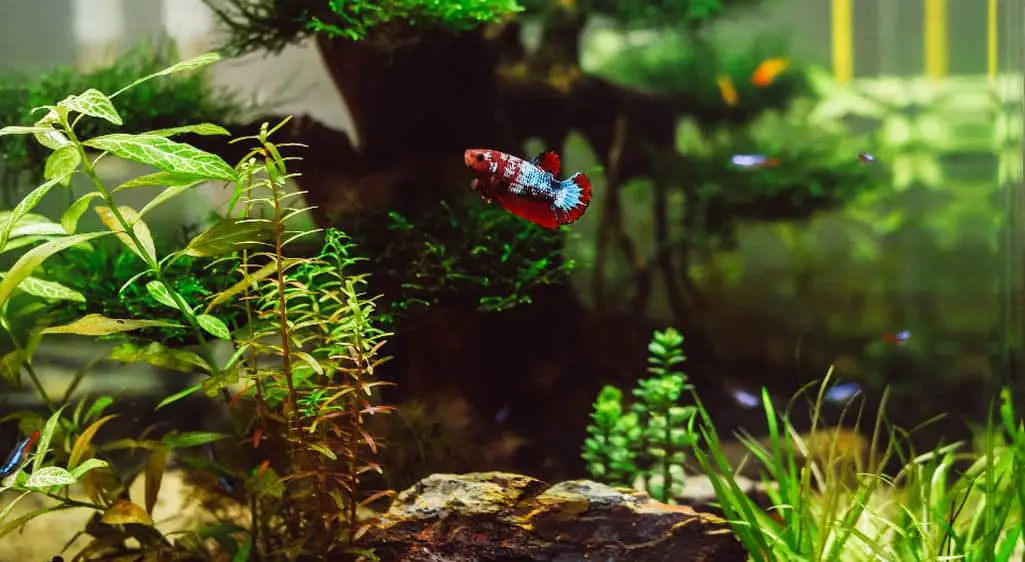
Decorations and other fixtures can be put in to keep your fish habitat exciting and stimulating. Plants are one option to consider.
You can choose between live plants and fake plants.
Beginners might have a hard time with live fauna. So a fake plant could be a better choice.
If you get a fake plant for your tank, make sure it is made of soft material. You don’t want your pet to get injured by your decorations.
Silk plants are usually pretty soft, as are plastic plants. Fake plants are a nice rest area for your fish. It gives them a place to hide and getaway.
It also makes a tank look more filled and natural.
Benefits of Live Plants
Live plants have their own advantages though. They definitely require extra care, but they bring extra benefits. Real fauna is able to oxygenate your tank water.
This keeps your water fresh and healthy. Real plants also have cleaning properties. They will aid in filtering your aquarium, along with any other devices you have.
Real plants really add to the environment of a fish tank. They look even better than fake plants. But not everyone is suited to these types of decorations.
Get what you are comfortable with. Planting a tank can cost extra money because of the growing materials needed. It also takes time to cultivate plants in water.
Other decorations you could get include driftwood, and rocks. Driftwood is good if you have live plants. It can also serve as another hiding spot for your fish. Rocks and caves are nice for betta as well.
These structures are actually found in bettas own habitats. So consider putting them in your tank. With any decoration you get, think about space.
You don’t want to overfill your tank with stuff. There should be room for your pet to swim and get around.
Conclusion
Betta fish are housed as pets in tanks all over the world. These spunky little fish are guaranteed to liven up your home.
Most people make the mistake of thinking that bettas don’t need much care. But your betta needs to be looked out for just like any other fish species.
Don’t make the same errors as other first-time betta owners. Keep your tank clean, feed them appropriately, and give them space to live in!
In this article, we went over the most pressing betta fish facts. You need to know which fish are okay to put in with this pet.
You also need to be aware of the care requirements for betta. Taking good care of any pet is important!
3 Reasons Why Your Betta Fish is Turning White or Losing Color




